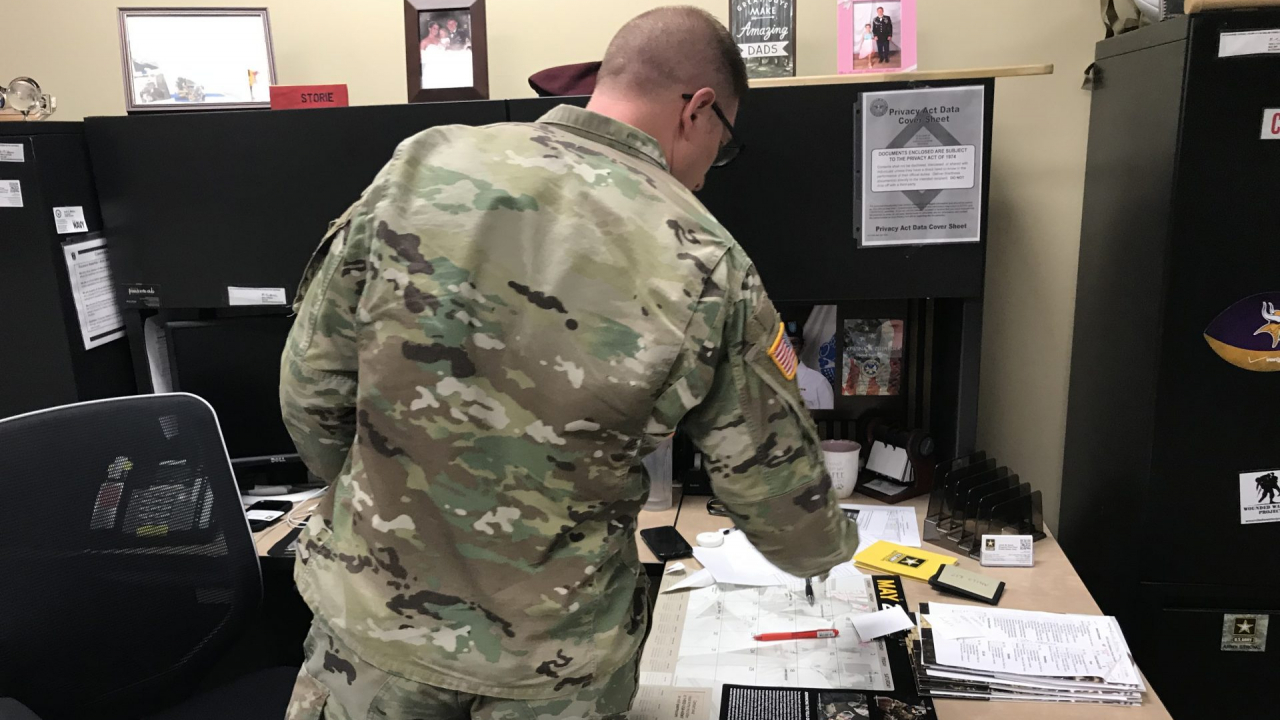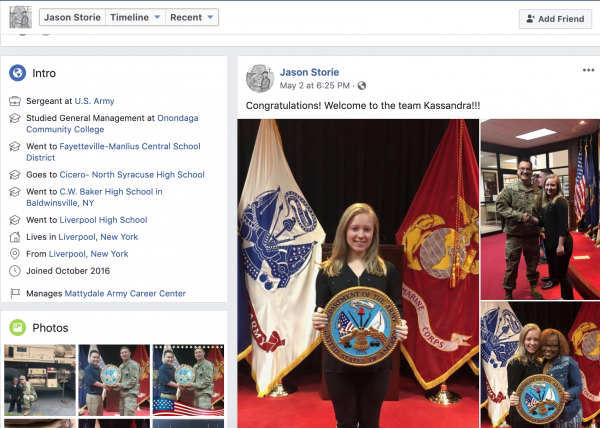ROSS: Sergeant First Class Justin Storie graduated from Liverpool High School in 2005 and enlisted in the Army. He joined as an infantryman, not once thinking he’d be a recruiter.
STORIE: If you had asked me three years ago if I was going to be a recruiter, I would have said no. I just didn’t see myself convincing people that joining the army was a good idea.
ROSS: But Storie was assigned to become a recruiter in the Army’s North Syracuse office three years ago. Now, he says he enjoys the job. He’s also fine-tuned his pitch.
STORIE: The level of training that you’re going to receive and leadership skills that you’re going to apply If you get back into the civilian world, it’s going to set you apart from your peers…(continue sound but fade out under next voice track)
ROSS: However, trying to recruit people to become officers and lead has been a challenge lately. The number of active duty army officers has dropped by almost 8 percent in the last six years. Dr. Beth Asch is an expert in military recruiting and says a flourishing job market might be cutting into the talent pool.
ASCH: There’s been research on this for decades that consistently shows that when the economy improves, unless the army takes proactive steps, recruiting goes down.
ROSS: Minchailou Kanoute, Syracuse University Army ROTC cadet, says he also notices there aren’t many his age very eager to serve.
KANOUTE: Out of a high school of like 900-something kids, I’d say about four had enlisted in the military, and I’m counting myself doing ROTC as being one of those kids. So, it’s not a popular career path.
ROSS: These factors have forced the Army to innovate its approach.
ASCH: It’s using and adapting in social media.
SOUND of iPhone Notification
STORIE: I make all my money on social media.
ROSS: Storie has even created a Facebook account with the stage name “Jason” specifically for recruiting.
STORIE: That’s where all the kids are at today: Instagram, Facebook, some of the guys use Snapchat.
ROSS: The Army is also starting to ramp up efforts in 22 of the country’s largest cities, places it doesn’t typically target.
ASCH: I think the Army’s logic is: Let’s try recruiting places where we’ve typically focused less effort because the reason it might have been less productive is simply because we haven’t put the effort in, not that there’s not a willingness.
ROSS: That may cure what Kanoute says is a general lack of understanding of the military amongst his peers.
KANOUTE: They think that if you go to the military, you’re automatically gonna die and stuff like that. They don’t understand that you know, the military is more than just what you see in Call of Duty or in movies and stuff like that. There’s a lot of things behind.
ROSS: Storie also agrees filling in the blanks is a difference maker for people.
STORIE: When you have a good understanding of the benefits and the level of training you’re going to receive within the military is going to make you real competitive in the civilian force.
ROSS: So if you’re a college graduate, don’t be surprised if Uncle Sam comes calling from somewhere you may not expect it.
SOUND of iPhone Notification
ROSS: Brandon Ross, NCC News.






